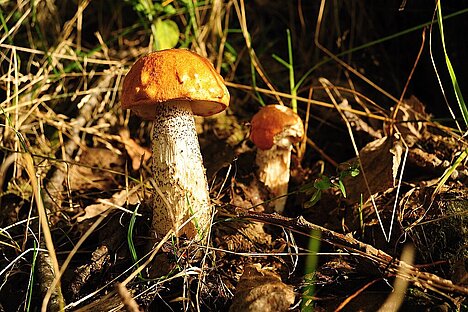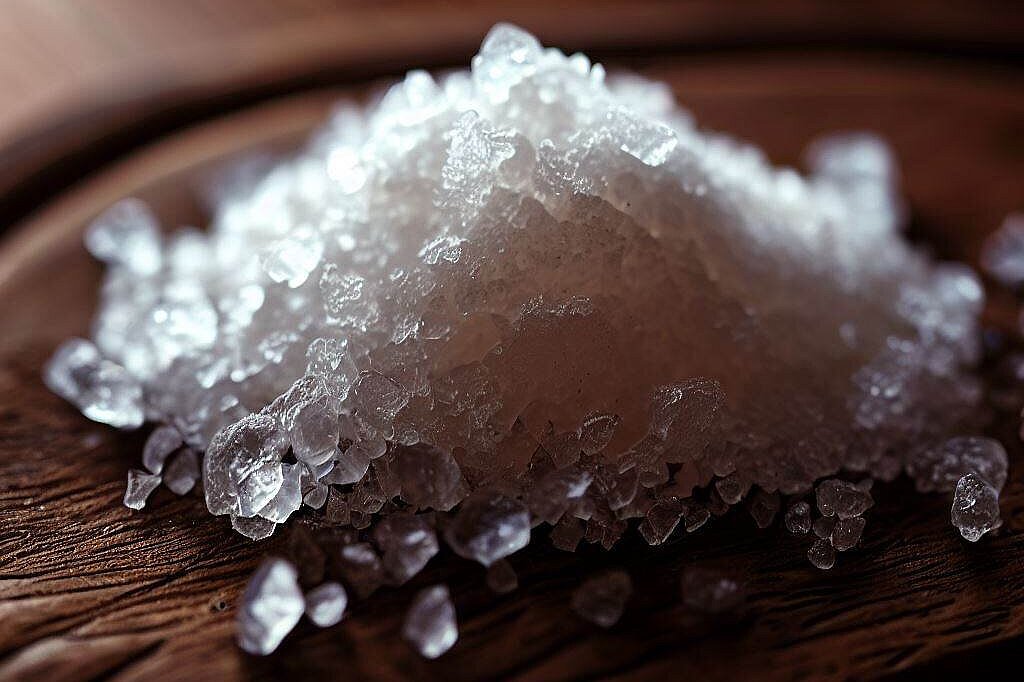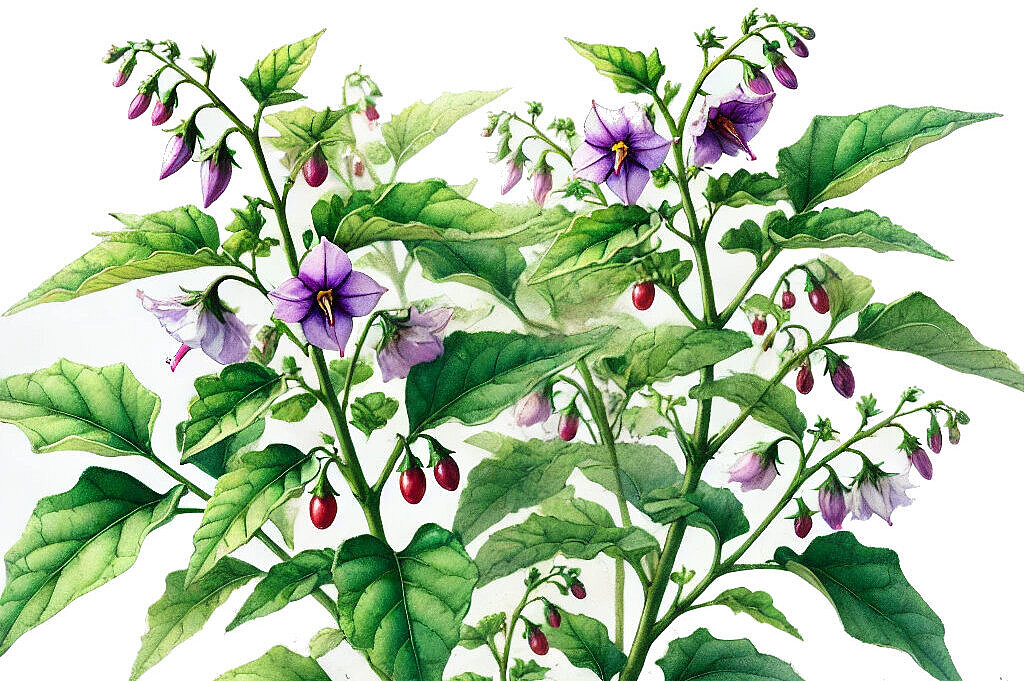Muscarine

Muscarine is a toxic substance found in some mushrooms. It can lead to severe poisoning in dogs if they eat these mushrooms or come into contact with them. However, muscarine also has an important function in the body and can even be used therapeutically. In this article, you can find out more about muscarine and how you can protect your dog from poisoning.
What is muscarine?
Muscarine is a so-called alkaloid, i.e. a nitrogen-containing substance that is formed in plants or animals. It is a parasympathomimetic, i.e. a substance that mimics the effect of the parasympathetic nervous system. The parasympathetic nervous system is part of the autonomic nervous system, which is responsible for the recovery and regeneration of the body. For example, it lowers the heart rate and blood pressure and promotes digestion and salivation.
Muscarin acts on special receptors that are named after it: the muscarinic receptors. These receptors are found in various organs, for example in the heart, blood vessels, respiratory tract, bladder and gastrointestinal tract. When muscarinic acid binds to these receptors, it triggers different effects depending on where the receptor is located.
Where is muscarine found?
Muscarine occurs naturally in some species of fungi, particularly in the genera Inocybe and Clitocybe. These mushrooms are often inconspicuous and can easily be mistaken for edible mushrooms. They grow mainly in fall and spring in meadows or forests. Some of these mushrooms have a characteristic smell of carbolic or iodoform.
Muscarine is also found in the bodies of humans and animals. It is formed from acetylcholine, an important messenger substance in the nervous system. Acetylcholine is normally broken down quickly by an enzyme called acetylcholinesterase. If this enzyme is inhibited, for example by certain drugs or toxins, acetylcholine can accumulate and lead to increased muscarinic production.
What are the symptoms of muscarinic intoxication?
Muscarinic poisoning can occur in dogs if they eat food containing fungi or come into contact with objects contaminated with fungi. Symptoms usually occur within 15 to 30 minutes of ingestion and can last up to 24 hours. They depend on the amount of muscarine ingested and may include the following:
- Salivation
- vomiting
- diarrhea
- abdominal pain
- sweating
- lacrimation
- Constriction of the pupils
- shortness of breath
- drop in blood pressure
- Cardiac arrhythmia
- convulsions
- Loss of consciousness
Muscarine poisoning can be life-threatening and requires immediate veterinary treatment. The vet will try to remove the poison from the gastrointestinal tract, for example by vomiting or gastric lavage. The vet will also give the dog medication to stop or weaken the effect of muscarine. These drugs are called anticholinergics or atropines.
How can you protect your dog from muscarinic poisoning?
The best way to prevent muscarine poisoning is to keep your dog away from mushrooms. Don't pick mushrooms near your dog and don't let him sniff or lick mushrooms. Do not keep mushrooms within reach of your dog either.
Muscarine is an alkaloid found in some species of fungi, particularly in the genera Inocybe and Clitocybe. It acts on muscarinic receptors in the body and can cause poisoning in dogs if they eat food containing mushrooms or come into contact with objects contaminated with mushrooms. Symptoms of muscarine poisoning in dogs can include salivation, vomiting, diarrhea, respiratory distress, cardiac arrhythmias and seizures and require urgent veterinary treatment. The best prevention is to keep dogs away from mushrooms and not allow food containing mushrooms within their reach.
If you notice any signs of hypersensitivity or poisoning in your dog, you should see your vet immediately. We are not a substitute for a vet, but we try to be as accurate as possible. Every dog reacts differently and we recommend you get a second opinion or consult your vet if in doubt.
Stay healthy and take good care of your four-legged friend!😊
Similar to Muscarine
Atropine is one of the so-called anticholinergics, which means that it inhibits the effect of acetylcholine, a messenger substance in the nervous system. Acetylcholine is involved in many processes...
Nicotine has a similar effect on dogs as it does on humans, except that dogs are much more sensitive to it. Nicotine binds to special receptors in the brain and triggers a series of chemical...
Scopolamine is a so-called parasympatholytic, which means that it blocks the receptors for acetylcholine at the ends of the nerve fibers that originate from the parasympathetic nervous system. The...
Coniine is a toxic alkaloid that is primarily found in the genus Conium, especially in spotted hemlock (Conium maculatum). It is a colorless to slightly yellowish liquid that is highly toxic even in...



